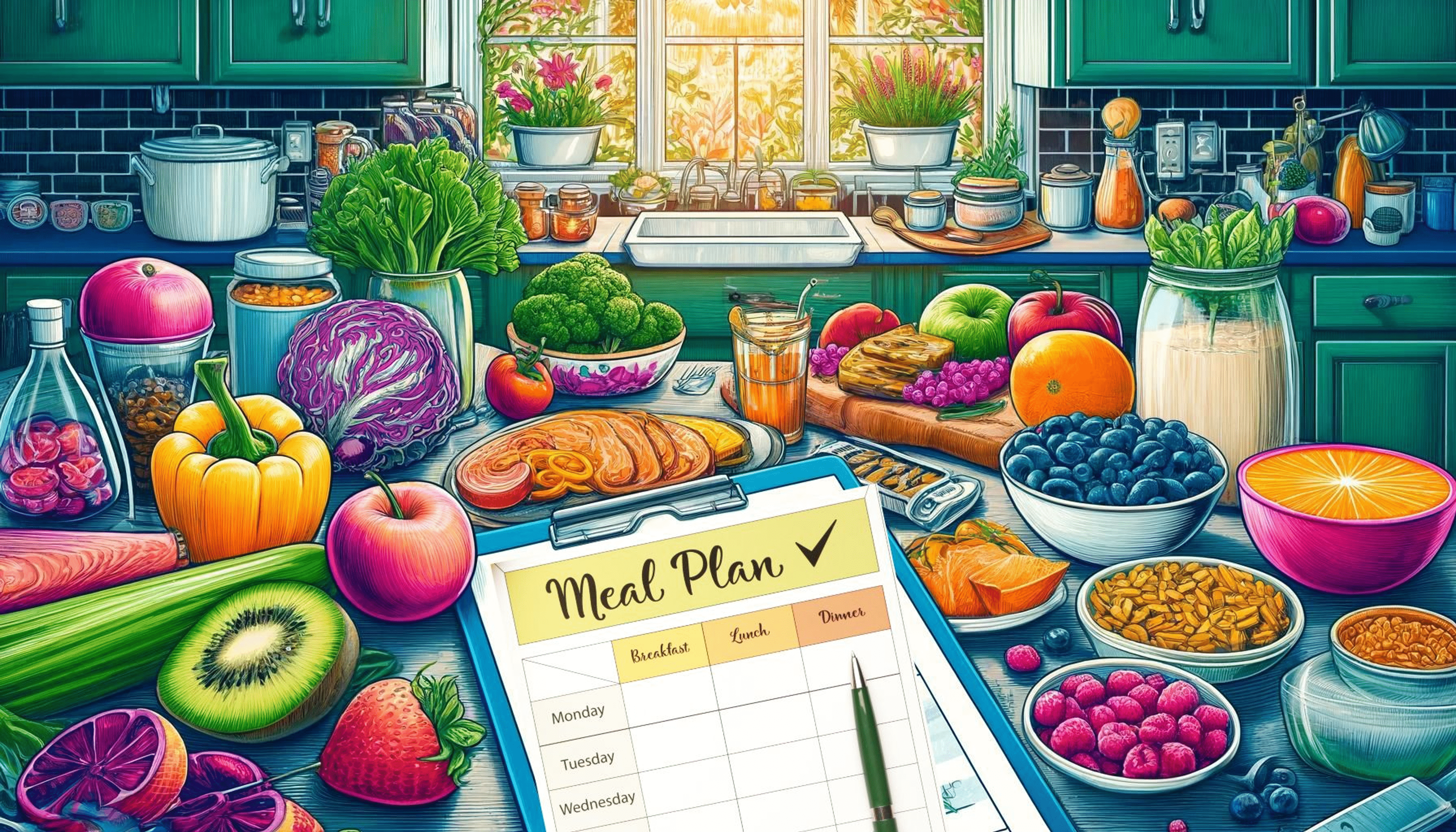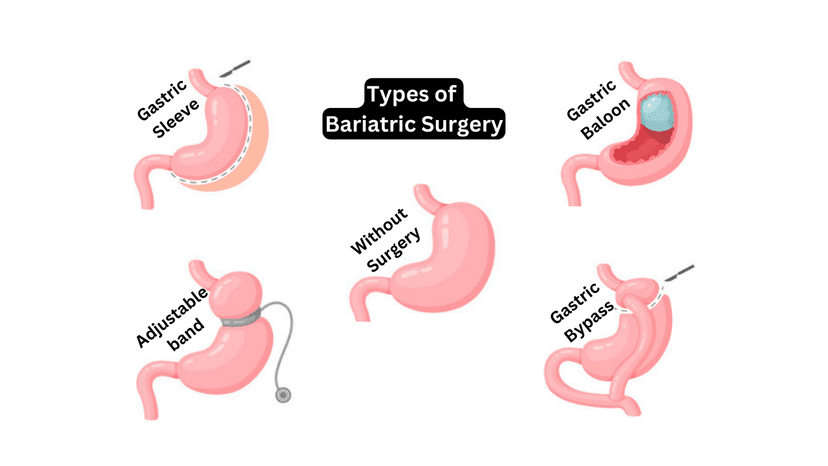Meal Planning and Prep: A Guide for the Long-Term Post-Op Life

The Importance of Meal Planning Post-Weight Loss Surgery
Often, the thought of starting a meal planning and preparation routine can seem overwhelming, yet its importance in a long-term diet after weight-loss surgery cannot be understated. Meal planning is a key element that leads to the success of maintaining an optimal weight and ensuring good health after a weight-loss procedure. It can justly be perceived as the backbone of a healthy diet because it lays the groundwork for regular, balanced meals needed to maintain weight, and provides the essential nutrients our bodies require.
Benefits of Meal Planning in Post-Op Life
The benefits of meal planning stretch far beyond just weight management. A well-crafted meal plan takes into account the individual's nutritional needs, dietary restrictions, and personal food preferences. This strategic approach to eating allows us to have control over what we eat, how much we eat, and when we eat it.
- Consistency: Regular, consistent meal patterns can reduce hunger, manage blood sugars, and even improve digestion.
- Nutrient Dense: Meal planning ensures that the meals you consume are rich in essential nutrients. Fresh, whole foods used in planned meals typically have fewer additives and unhealthy fats.
- Accountability: Planning meals in advance helps us resist the urge to resort to unhealthy choices when hungry or when in a hurry.
Avoiding Nutritional Deficiencies and Unhealthy Temptations
Post-surgery, different types of weight loss procedures might limit the body's ability to absorb certain nutrients, leading to potential nutritional deficiencies. This is where a well-planned meal comes in handy. It will not only provide the necessary vitamins and minerals needed to avoid deficiencies, but also the right balance of proteins, carbs, and fats.
Moreover, having a well-thought-out stategy for meals and snacks will help you distance yourself from the unhealthy temptations that can trigger overeating and stray you away from your nutritional goal post-op. Remember, the goal is now to keep a watchful eye on what goes into your meals.
Managing Portion Sizes for Sustained Weight Loss
Post surgery, the stomach's capacity to hold food becomes significantly smaller. Here, portion control becomes of utmost importance. Planning and prepping meals ahead of time allow you to adjust portion sizes to correspond with your new eating capacity.
A well-designed meal would normally include small portions of lean proteins and large amounts of non-starchy vegetables. Incorporating these elements into meals can ensure a steady, controlled weight loss, while still meeting our nutritional needs.
In essence, embarking on meal planning and preparation can significantly influence and boost your journey toward a healthier life after weight loss surgery. It's not just about the quantity of food but the quality, balance, and nutritional value that will count in the long run.
Strategies for Effective Meal Planning and Prep
Imagine a life where you're not constantly worrying about what to eat, where your meals align with your post-operative dietary needs and you're not spending endless hours in the kitchen. Sounds dreamy, right? Well, it's entirely possible with meal planning and preparation. Let's dive into how to create a routine that suits you, empowers you to select nutrient-dense foods, organize your shopping lists effectively, and prepare your meals in advance while leveraging technology and tools to make the process simpler.
Selecting the Right Foods for Your Dietary Needs
Post-operative life involves changes in your daily habits, with a significant emphasis on your dietary needs. The first step in effective meal planning involves selecting the right foods that are not only delicious but also align nicely with your new dietary requirements.
Seek out nutrient-dense foods — foods that carry substantial amounts of vitamins, minerals, and other nutrients with relatively few calories. Foods like lean proteins, whole grains, and fresh fruits and vegetables are powerhouses of nutrients essential for your recovery and long-term health. Be mindful to incorporate an adequate balance of macronutrients—proteins, fats, and carbohydrates—and be sure to limit intake of overly processed or high-sodium foods.
Organizing Weekly Meal Plans and Shopping Lists
The second strategy in your meal planning and prepping journey involves effectively organizing your weekly meal plans and shopping lists. This step might seem daunting at first, but with consistency, it can become a seamless part of your healthy lifestyle.
Start by laying out a weekly meal plan. Decide the types and quantities of meals and snacks you need each day. Your daily needs will depend on your specific dietary guidelines provided by your healthcare team, and might require adjustments over time.
Once your meal plan is in place, create a shopping list. Group your items by categories such as produce, dairy, grains, and proteins, or arrange your list according to the layout of your grocery store. This organization will not only save you time at the store but will also minimize the temptation to wander into aisles that might lead to impulse purchases of less healthy options.
Prepping Meals in Advance to Save Time and Reduce Stress
Meal preparation, or "meal prep," is your practical implementation of the meal plan. This technique involves preparing whole meals or dishes ahead of schedule. It’s a great way to save time and reduce decision fatigue related to food.
Consider using one day of the week—perhaps a weekend day when you might have a bit more time—to prepare your meals. Your meal prep day might involve chopping vegetables, cooking proteins, portioning out meals into containers, or fully cooking meals that can easily be reheated. Meal prep can range from preparing all meals for the week at once to just prepping ingredients to shorten cooking times on weekday nights. Find the best approach that works for you and your schedule.
Remember to safely store your meals to ensure freshness and prevent spoilage. Invest in quality food storage containers that keep your food fresh and are easy to grab on the go.
By selecting nutrition-dense foods, effectively organizing your weekly meal plans and shopping lists, and enjoying the simplicity brought by prepping meals in advance, meal planning and preparation can become an easy and enjoyable part of your post-op lifestyle. In the next section, we'll look into the technological tools and hacks to streamline this process even further. Remember, the goal here is to build sustainable habits that support your long-term health, so be patient with yourself and enjoy the journey as much as the destination.
Overcoming Challenges in Meal Planning and Prep
After a surgical weight loss procedure, your life changes in significant ways, and one of the key areas is your diet. These changes present unique challenges in meal planning and prep that requires a tailored approach. These challenges can be related to limited time, dietary restrictions, and changing tastes or food tolerances that can make the process tough. However, with the right tips and strategies, it is entirely possible to overcome these hurdles and maintain a healthy, meal planning routine.
Adapting to Changing Tastes and Dietary Needs
Post weight loss surgery, your dietary needs and tastes may undergo considerable changes. You might have to deal with the reality of shrinking stomach size and increased sensitivity to certain foods.
Here's how you can adapt:
- Start small: Post-surgery, meals should be much smaller than your pre-surgery ones. Consuming smaller meals throughout the day can aid digestion and prevent discomfort.
- Get to know your new body: Pay attention to how your body reacts to different foods and adjust accordingly. Some foods you enjoyed in the past may now prove to be difficult to digest.
To help with these sudden changes, it can be beneficial to enlist the help of a licensed dietitian. These professionals can offer personalized advice, help develop meal plans, and guide you in understanding food labels.
Time-Saving Tips and Tricks for Busy Schedules
One of the key challenges in meal planning post-surgery is finding time. You might be balancing your new dietary requirements with physical activities, work, and potentially festival commitments. Here are some time saving tips:
- Batch Cooking: Cook large quantities of a meal and divide it into smaller portions to freeze and eat throughout the week.
- Use a slow cooker: Meals with slow cookers require minimal prep and can be left to cook overnight or while you're at work.
- Online Shopping: Save time and avoid impulse buying by grocery shopping online.
These time-saving techniques can help minimize time in the kitchen and maximize time for recovery and wellness.
Staying Motivated and Creative with Meal Choices
It's easy to fall into a rut and prepare the same meals repeatedly. However, a varied diet can serve your nutritional needs better. Be innovative with your meals and leverage healthy substitutes for more variety.
- Look for new recipes: The internet is an endless resource for meal ideas. Try to find recipes that incorporate different types of proteins, grains, and vegetables.
- Make your meals visually appealing: Use a variety of colors and textures to make your meals enjoyable. A visually appealing meal can enhance the eating experience.
Learning to overcome the challenges of meal planning and prep after weight loss surgery can provide long-term benefits. By adapting to your changing diet, finding time-saving strategies, and keeping your meals varied and interesting, you'll be setting the foundation for a sustainable and health-centered post-op life.
In Summary
The journey toward a healthy life post weight loss surgery significantly depends on meal planning and preparation. Starting a meal planning routine could seem daunting initially, but it has numerous long-term benefits concerning consistent weight loss, nutrient intake and managing portion sizes. This approach gives an individual control over what, when, and how much they eat.
Post-operative dietary changes may present unique challenges. However, with the right strategies and tools, it becomes manageable. Being mindful of nutritional needs and tastes, leveraging time-saving techniques such as batch cooking or online grocery shopping, and using creativity to keep meals varied and enjoyable can alleviate these hurdles.
Now, it's time to create a plan of action and implement this knowledge.
Plan of Action
-
Begin your meal planning journey by identifying nutrient-dense foods that align with your post-operative dietary needs.
-
Organize your weekly meal plans and create a shopping list, keeping in mind the quantity and variety of meals you need each day.
-
Start prepping meals in advance. This could involve fully cooking meals, merely chopping vegetables or cooking proteins—whatever works best for your routine.
-
Learn to adapt to the changing tastes and dietary needs post-surgery. Pay attention to your body's reactions to different foods and adjust your meal plan accordingly.
-
Utilize time-saving techniques such as online grocery shopping, batch cooking or using a slow cooker to help reduce time in the kitchen.
-
Keep your meals varied and visually appealing. Look for new recipes and use a variety of colors and textures in your meals.
Action Steps
-
Start by identifying optimal foods for your dietary needs this week.
-
The following week, begin organizing your meal plans and shopping lists.
-
Start meal prepping by the third week.
-
As you continue adjusting to your new dietary habits, reflect on new tastes and preferences, and revise your meal plans as needed.
-
Incorporate time-saving techniques one by one into your routine.
-
Once confident in your meal planning and prepping routine, start experimenting with new recipes for variety.
Remember, as you embark on this new journey post weight loss surgery, the mantra is consistency. Changes will not emerge overnight, but with determination and regular improvements in your habits, you can enjoy a healthier, fulfilled post-operative life. Remember to consult with your healthcare provider or a dietitian to ensure your practices align well with your individual medical needs and nutritional goals.

